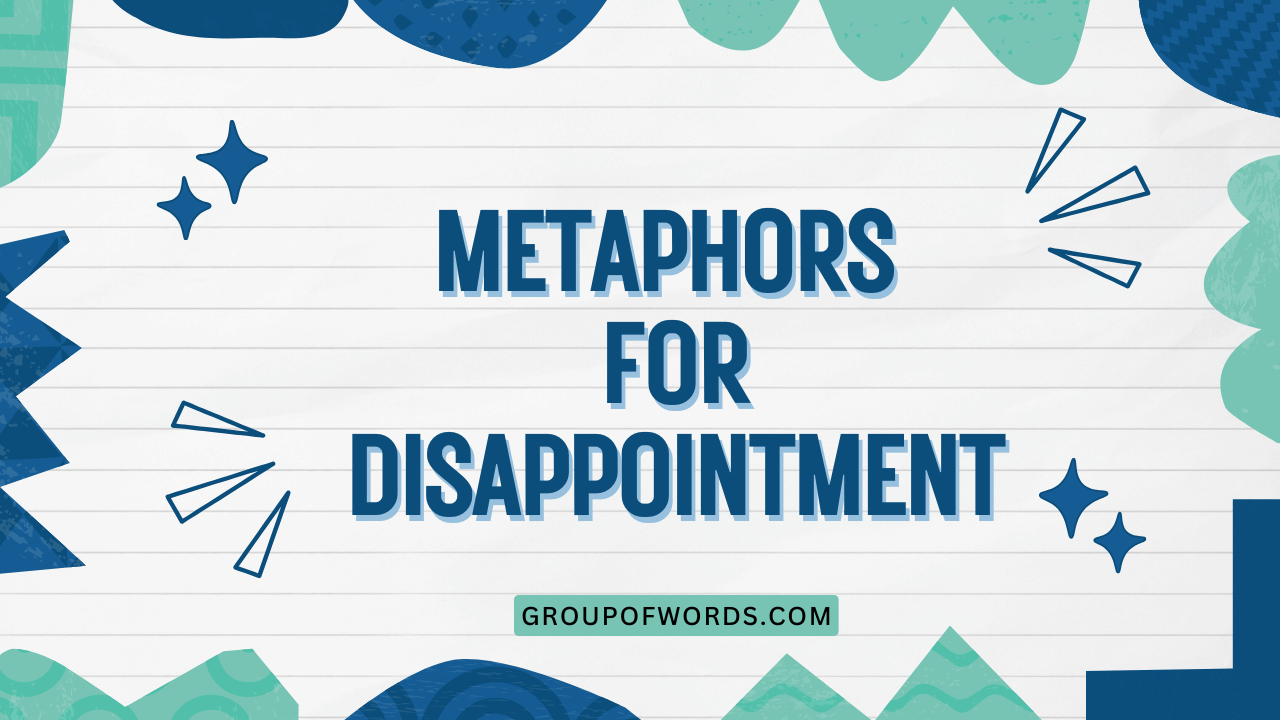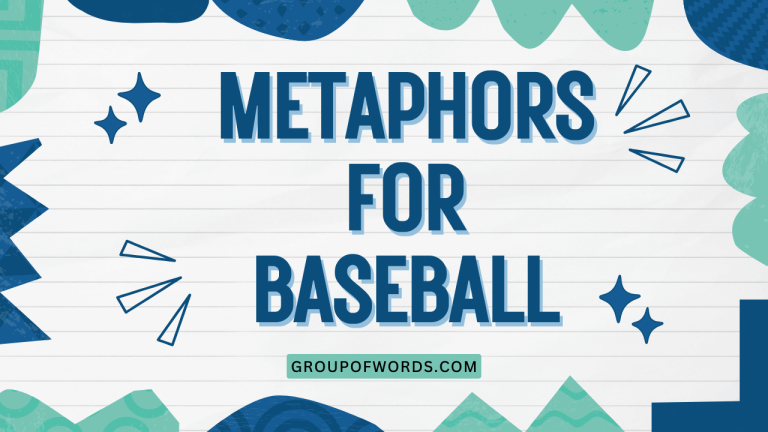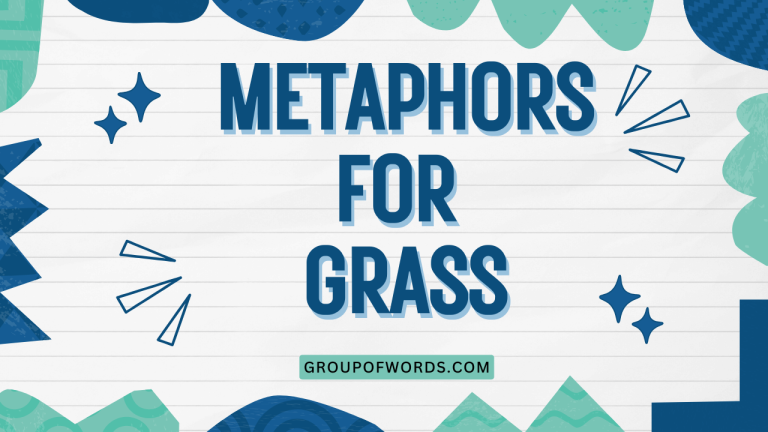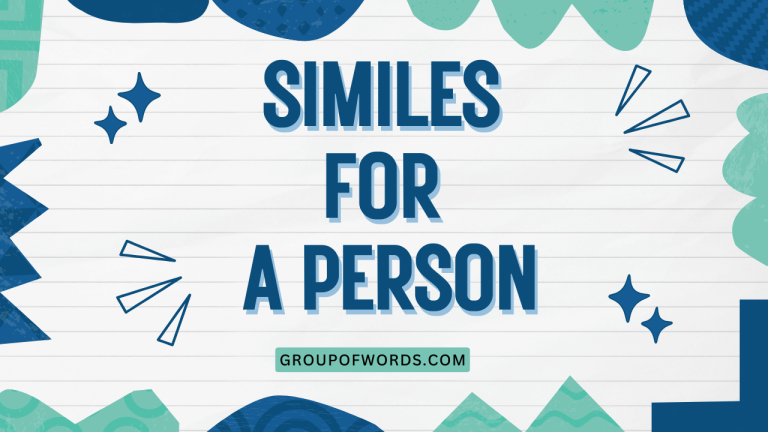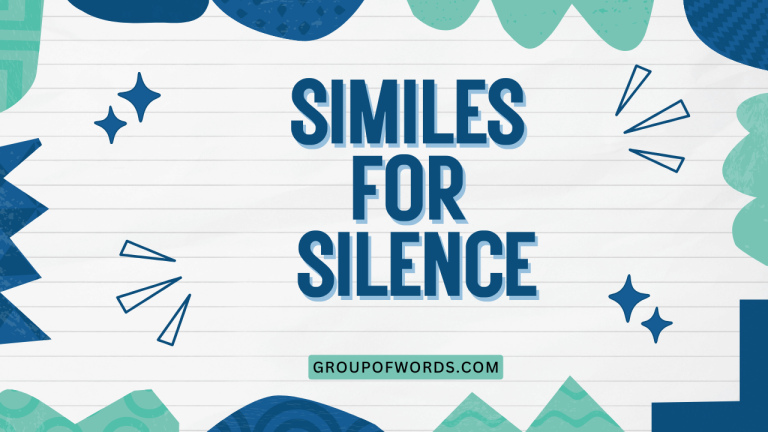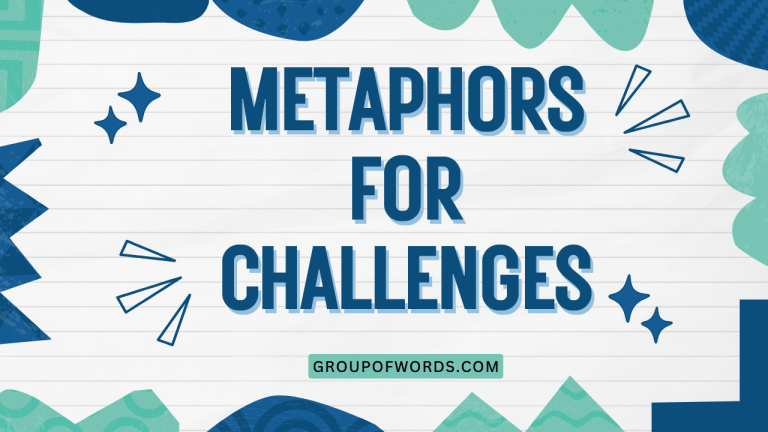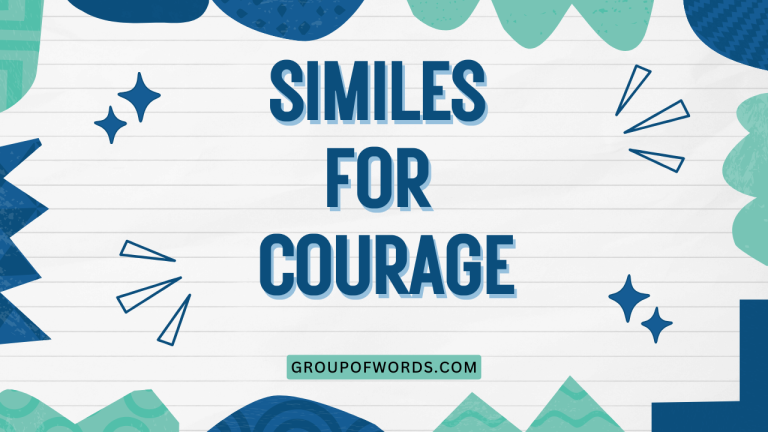Metaphors for Disappointment: A Comprehensive Guide
Disappointment is a universal human experience, and English provides a rich tapestry of metaphors to express its nuances. Understanding these metaphors not only enhances your vocabulary but also allows you to communicate your feelings more effectively and understand others better.
This article delves into the various types of metaphors used to convey disappointment, providing examples, usage rules, and practice exercises. This guide is beneficial for English language learners of all levels, from beginners seeking to expand their vocabulary to advanced speakers aiming to refine their expressive abilities.
Table of Contents
- Introduction
- Definition of Metaphor and Disappointment
- Structural Breakdown of Disappointment Metaphors
- Types of Metaphors for Disappointment
- Examples of Metaphors for Disappointment
- Usage Rules for Metaphors of Disappointment
- Common Mistakes When Using Metaphors for Disappointment
- Practice Exercises
- Advanced Topics in Metaphorical Language
- Frequently Asked Questions
- Conclusion
Definition of Metaphor and Disappointment
A metaphor is a figure of speech that directly compares two unrelated things, suggesting a similarity between them. It’s a powerful tool for conveying complex emotions and ideas in a vivid and relatable way. Unlike similes, which use words like “like” or “as” to make a comparison, metaphors imply the comparison directly. For example, saying “He is a lion” is a metaphor, while saying “He is brave like a lion” is a simile.
Disappointment is the feeling of sadness or dissatisfaction that arises when one’s expectations or hopes are not met. It’s a common emotion that can range from mild frustration to deep sorrow. Because disappointment is an abstract emotion, we often use metaphors to express its intensity and impact. These metaphors help us understand and communicate the emotional weight of unmet expectations.
Structural Breakdown of Disappointment Metaphors
Metaphors for disappointment typically consist of two main elements: the tenor and the vehicle. The tenor is the subject being described (in this case, disappointment), and the vehicle is the object or concept used to describe it. The effectiveness of a metaphor lies in the connection between the tenor and the vehicle, drawing on shared qualities or associations.
The structure can be analyzed as follows: Disappointment (Tenor) is like [Vehicle]. The “is like” is usually implied, not explicitly stated. The vehicle provides a concrete image or sensation that helps the listener or reader understand the abstract feeling of disappointment. The choice of vehicle influences the specific nuance of disappointment being conveyed – whether it’s a feeling of heaviness, emptiness, or pain.
Types of Metaphors for Disappointment
Metaphors for disappointment can be categorized based on the specific imagery or concepts they employ. Here are some common types:
Weight and Burden Metaphors
These metaphors describe disappointment as a heavy load or burden. They emphasize the feeling of being weighed down or burdened by unmet expectations.
These metaphors often use words like “heavy,” “burden,” “weight,” or “load.” The underlying idea is that disappointment creates a sense of emotional heaviness that makes it difficult to move forward.
Falling and Dropping Metaphors
These metaphors depict disappointment as a sudden fall or drop. They highlight the feeling of losing ground or being let down.
Words like “fall,” “drop,” “plummet,” or “sink” are frequently used. These metaphors often convey a sense of surprise and loss of control, as if one’s hopes have been abruptly dashed.
Darkness and Cold Metaphors
These metaphors associate disappointment with darkness, coldness, or gloom. They emphasize the feeling of bleakness, sadness, and isolation.
Words like “dark,” “cold,” “shadow,” or “bleak” are common. These metaphors can suggest a sense of hopelessness and a lack of warmth or comfort.
Sharpness and Pain Metaphors
These metaphors describe disappointment as a sharp, piercing pain. They emphasize the intense emotional sting of unmet expectations.
Words like “sharp,” “sting,” “cut,” or “stab” are often used. These metaphors convey a sense of immediate and acute emotional suffering.
Stuckness and Lack of Progress Metaphors
These metaphors portray disappointment as a state of being stuck or unable to move forward. They emphasize the feeling of being trapped or unable to progress toward one’s goals.
Words like “stuck,” “immobilized,” “paralyzed,” or “motionless” are common. These metaphors suggest a sense of frustration and stagnation.
Sinking and Drowning Metaphors
These metaphors depict disappointment as a feeling of sinking or drowning. They emphasize the feeling of being overwhelmed and losing control.
Words like “sink,” “drown,” “submerge,” or “overwhelmed” are frequently used. These metaphors convey a sense of helplessness and being consumed by negative emotions.
Emptiness and Void Metaphors
These metaphors describe disappointment as a feeling of emptiness or a void. They emphasize the absence of something desired or expected.
Words like “empty,” “void,” “hollow,” or “barren” are common. These metaphors suggest a sense of loss and a lack of fulfillment.
Weather and Storm Metaphors
These metaphors use weather imagery to represent disappointment, often associating it with storms, rain, or cloudy skies. They emphasize the feeling of being overwhelmed by negative emotions or a sense of gloom.
Words like “storm,” “rain,” “cloud,” or “thunder” can be used. These metaphors convey a sense of turbulence and emotional upheaval.
Physical Ailment Metaphors
These metaphors describe disappointment as a physical ailment or sickness. They emphasize the feeling of being unwell or weakened by unmet expectations.
Words like “sick,” “ill,” “weak,” or “debilitated” may be used. These metaphors convey a sense of physical and emotional exhaustion.
Examples of Metaphors for Disappointment
The following tables provide examples of metaphors for disappointment, categorized by type:
Table 1: Weight and Burden Metaphors
This table illustrates how disappointment can be described as a heavy burden, using various metaphors that emphasize the feeling of being weighed down.
| Example | Explanation |
|---|---|
| The news hit him like a ton of bricks. | The disappointment was sudden and overwhelming. |
| Her hopes were a heavy weight on her shoulders. | The expectation of success was a burden for her. |
| The failure was a crushing blow to his ego. | The disappointment severely damaged his self-esteem. |
| She carried the burden of her unmet expectations. | She felt responsible for not achieving her goals. |
| The rejection felt like a lead weight in her stomach. | The disappointment caused physical discomfort and anxiety. |
| His dreams crumbled under the weight of reality. | His aspirations were destroyed by the harsh truth. |
| The silence was a heavy blanket of disappointment. | The unspoken disappointment was palpable and oppressive. |
| The missed opportunity cast a long, heavy shadow over her day. | The disappointment lingered and affected her mood. |
| His heart felt like it was carrying the weight of the world after the loss. | The disappointment was immense and overwhelming. |
| She was weighed down by the anchor of unfulfilled promises. | The broken promises created a sense of burden and stagnation. |
| The project’s failure added another layer to the heavy cake of his past regrets. | This setback compounded his existing disappointments. |
| He bore the cross of his team’s defeat with stoic resignation. | He accepted the disappointment with a sense of duty and suffering. |
| The weight of expectation pressed down on her until she nearly buckled. | The pressure to succeed was almost unbearable. |
| Each setback was a stone added to the cairn of his disappointments. | His disappointments accumulated over time. |
| The burden of leadership became excruciatingly heavy during the crisis. | The responsibilities felt overwhelming in the face of adversity. |
| The news was a lead balloon, deflating all their excitement. | The news completely diminished their enthusiasm. |
| His hopes were shackled by the chains of reality. | His aspirations were restricted by practical constraints. |
| The disappointment was a heavy yoke around his neck. | The unmet expectations were a constant burden. |
| Her spirit was burdened by the albatross of regret. | She was haunted by her past mistakes. |
| He felt the weight of the world on his shoulders after the announcement. | He felt immense responsibility and pressure after the news. |
Table 2: Falling and Dropping Metaphors
This table showcases metaphors that use the imagery of falling or dropping to describe the feeling of disappointment, highlighting the sense of loss and sudden descent.
| Example | Explanation |
|---|---|
| Her spirits plummeted when she heard the news. | Her mood dropped drastically after receiving the news. |
| His hopes fell flat when the deal fell through. | His aspirations were completely unsuccessful. |
| She felt like she had fallen into a deep hole. | She felt trapped and unable to escape her disappointment. |
| His dreams crashed and burned. | His aspirations were completely destroyed. |
| The project went down in flames. | The project failed spectacularly. |
| Her expectations came crashing down around her. | Her hopes were suddenly and completely shattered. |
| He felt a sinking feeling in his stomach when he realized his mistake. | He experienced a sense of dread and impending failure. |
| The team’s morale took a nosedive after the defeat. | The team’s spirits dropped sharply after the loss. |
| Her confidence took a tumble after the criticism. | Her self-assurance decreased significantly after the negative feedback. |
| His career aspirations spiraled downwards after the scandal. | His professional goals declined rapidly due to the controversy. |
| The stock market plunged, mirroring his own feelings of despair. | The market decline reflected his personal sense of hopelessness. |
| Her voice trailed off, her enthusiasm dropping like a stone. | Her excitement diminished rapidly as she spoke. |
| The soufflé of his ambitions collapsed under the pressure of reality. | His aspirations proved too fragile to withstand real-world challenges. |
| He felt like he was freefalling without a parachute. | He felt completely out of control and vulnerable. |
| The rug was pulled out from under him when he lost his job. | He was suddenly and unexpectedly deprived of his security. |
| His ambitions went belly up after the funding was cut. | His aspirations failed completely after the financial support ended. |
| Her hopes evaporated like dew in the morning sun. | Her aspirations quickly disappeared. |
| The deal tanked at the last minute. | The deal failed unexpectedly. |
| His spirits nose-dived after the rejection. | His mood dropped sharply after being rejected. |
| She felt a sudden drop in her heart when she heard the news. | She experienced a sudden feeling of sadness. |
| His expectations were deflated like a punctured tire. | His hopes were quickly diminished. |
| The project cratered after the initial enthusiasm waned. | The project failed significantly after the initial excitement faded. |
| His dreams shattered into a million pieces. | His aspirations were completely destroyed. |
Table 3: Darkness and Cold Metaphors
This table presents metaphors that use darkness and cold to describe disappointment, emphasizing feelings of bleakness, sadness, and isolation.
| Example | Explanation |
|---|---|
| A dark cloud hung over her after the argument. | She felt gloomy and sad after the disagreement. |
| His heart turned cold when he learned the truth. | He became emotionally detached after discovering the truth. |
| She felt a chill of disappointment run down her spine. | She experienced a sudden feeling of sadness and unease. |
| The future looked bleak after the failure. | The prospects for the future seemed hopeless. |
| A shadow of sadness fell over the room. | A feeling of sorrow permeated the atmosphere. |
| The news cast a pall of gloom over the entire office. | The news created a pervasive atmosphere of sadness. |
| Her smile faded, replaced by a cold, hard stare. | Her happiness disappeared, replaced by a detached expression. |
| A winter of discontent settled over their relationship. | A period of unhappiness and dissatisfaction began in their relationship. |
| He felt a dark emptiness where his hope used to be. | He experienced a profound sense of loss and absence of hope. |
| The rejection left him in the shadows of self-doubt. | He was plagued by feelings of uncertainty and inadequacy. |
| A gray fog of disillusionment clouded her perception. | Her ability to see things clearly was obscured by disappointment. |
| The atmosphere was frosty after the heated debate. | The atmosphere was tense and unfriendly after the argument. |
| A dark night of the soul followed his professional setback. | He experienced a period of intense emotional and spiritual turmoil. |
| The light had gone out of her eyes after the tragedy. | She had lost her joy and vitality after the devastating event. |
| A cold wind of reality swept away their illusions. | The harsh truth shattered their unrealistic expectations. |
| His enthusiasm was extinguished like a candle in the wind. | His excitement was quickly suppressed. |
| She felt a frost in her heart after the betrayal. | She became emotionally cold after being betrayed. |
| The room was filled with the icy silence of disappointment. | The disappointment created a tense and uncomfortable atmosphere. |
| His hopes were shrouded in a veil of uncertainty. | His aspirations were clouded by doubt. |
| She saw the world through a darkened lens after the loss. | She perceived things negatively after the bereavement. |
Table 4: Sharpness and Pain Metaphors
This table illustrates metaphors that use sharpness and pain to describe disappointment, emphasizing the intense emotional sting of unmet expectations.
| Example | Explanation |
|---|---|
| The rejection stung like a bee. | The rejection caused a sharp, immediate pain. |
| His words cut her like a knife. | His words caused her deep emotional pain. |
| The failure was a stab in the back. | The failure felt like a betrayal. |
| She felt a sharp pang of disappointment. | She experienced a sudden, intense feeling of sadness. |
| The news was a painful blow to her confidence. | The news severely damaged her self-esteem. |
| The criticism felt like a slap in the face. | The criticism was harsh and humiliating. |
| Her dreams were punctured by reality’s sharp edges. | Her aspirations were deflated by the harshness of the real world. |
| He felt the barb of regret digging deep into his conscience. | He experienced a persistent and painful feeling of remorse. |
| The truth sliced through her illusions like a shard of glass. | The truth shattered her false beliefs painfully. |
| The disappointment was a thorn in her side, constantly irritating her. | The disappointment was a persistent source of annoyance and discomfort. |
| His heart ached with the dull throb of unfulfilled longing. | He experienced a constant, painful feeling of wanting something he couldn’t have. |
| The broken promise felt like a deep wound that refused to heal. | The broken promise caused lasting emotional pain. |
| Her hopes were impaled on the spikes of harsh reality. | Her aspirations were destroyed by the severity of the real world. |
| The missed opportunity left a raw, stinging sensation. | The missed opportunity caused a fresh and intense feeling of disappointment. |
| His pride was wounded by the public humiliation. | He felt deeply ashamed after being publicly embarrassed. |
| The rejection was like a paper cut to his ego. | The rejection was a small but irritating blow to his self-esteem. |
| Her trust was shattered into razor-sharp fragments. | Her trust was completely destroyed, leaving her feeling vulnerable. |
| He felt the sting of failure with every step he took. | He was constantly reminded of his failure. |
| The harsh words pierced her heart like arrows. | The cruel words caused her immense emotional pain. |
| The disappointment was a bitter pill to swallow. | The disappointment was unpleasant but had to be accepted. |
Table 5: Stuckness and Lack of Progress Metaphors
This table presents metaphors that describe disappointment as a state of being stuck or unable to move forward, emphasizing the feeling of being trapped or unable to progress.
| Example | Explanation |
|---|---|
| She felt stuck in a rut after the setback. | She felt trapped and unable to move forward after the failure. |
| His career was in a standstill after the scandal. | His professional progress was halted due to the controversy. |
| She felt immobilized by her fear of failure. | She was unable to act due to her anxiety about failing. |
| His dreams were in a holding pattern. | His aspirations were temporarily suspended. |
| The project was dead in the water. | The project was no longer viable. |
| He was mired in a swamp of despair. | He was trapped in a state of deep sadness and hopelessness. |
| Her ambitions were trapped in a cage of limitations. | Her aspirations were restricted by various constraints. |
| He felt like he was running in place, never getting closer to his goals. | He felt like he was exerting effort without making any progress. |
| Her creativity was stifled by the rigid rules of the institution. | Her creativity was suppressed by the strict regulations. |
| The company was paralyzed by indecision during the crisis. | The company was unable to act due to a lack of clear direction. |
| He was stuck in a quagmire of bureaucratic red tape. | He was trapped in a complex and frustrating system of regulations. |
| Her efforts were bogged down by endless delays and obstacles. | Her progress was hindered by constant setbacks. |
| He felt like he was wading through treacle, progress slow and sticky. | He felt like he was making very slow and difficult progress. |
| Her career was marooned on a desert island of irrelevance. | Her professional life felt isolated and unimportant. |
| He was chained to his desk, unable to pursue his true passions. | He was restricted from following his desired pursuits. |
| Her potential was locked away in a vault of missed opportunities. | Her abilities were wasted due to a lack of chances. |
| He was trapped in a labyrinth of his own making. | He was caught in a complex and confusing situation of his own creation. |
| Her progress was stymied by constant interference from others. | Her advancement was prevented by ongoing obstruction. |
| He felt like he was pushing a boulder uphill, only for it to roll back down. | He felt like he was making great effort only to be constantly set back. |
| Her dreams were frozen in time, never to be realized. | Her aspirations were permanently stalled. |
Usage Rules for Metaphors of Disappointment
When using metaphors for disappointment, it’s important to consider the following rules:
- Clarity: The metaphor should be clear and easily understood. Avoid using obscure or overly complex metaphors that might confuse your audience.
- Relevance: The vehicle of the metaphor should be relevant to the context and appropriate for the tone of the communication.
- Consistency: Avoid mixing metaphors within the same sentence or paragraph. This can create a confusing and jarring effect.
- Originality: While common metaphors can be effective, try to use original or creative metaphors to make your writing more engaging and memorable.
It is also important to consider your audience and their understanding of the metaphor. The more abstract or culturally specific the metaphor is, the more likely it is to be misunderstood.
Common Mistakes When Using Metaphors for Disappointment
Here are some common mistakes to avoid when using metaphors for disappointment:
- Mixed Metaphors: Combining two or more incompatible metaphors in the same sentence.
- Incorrect: “He was skating on thin ice while climbing the ladder of success.”
- Correct: “He was skating on thin ice.” or “He was climbing the ladder of success.”
- Clichés: Using overused or predictable metaphors that lack impact.
- Incorrect: “She was feeling blue.”
- Correct: “A wave of melancholy washed over her.”
- Overly Complex Metaphors: Using metaphors that are too abstract or difficult to understand.
- Incorrect: “The epistemological ramifications of his failure were a Gordian knot of existential angst.”
- Correct: “His failure created a complex web of self-doubt.”
- Inappropriate Tone: Using metaphors that are not suitable for the context or audience.
- Incorrect (in a formal setting): “The deal went belly up.”
- Correct (in a formal setting): “The deal was unsuccessful.”
Practice Exercises
Exercise 1: Identifying Metaphors
Identify the metaphors for disappointment in the following sentences:
| Question | Answer |
|---|---|
| 1. The news hit her like a tidal wave. | tidal wave |
| 2. His dreams lay shattered on the floor. | shattered |
| 3. She felt a cold wind of reality blow through her hopes. | cold wind |
| 4. His expectations were a house of cards, easily toppled. | house of cards |
| 5. The missed opportunity left a gaping hole in her plans. | gaping hole |
| 6. The project sank like a stone. | sank like a stone |
| 7. Disappointment was a bitter pill to swallow. | bitter pill |
| 8. He was buried under the avalanche of his failures. | avalanche |
| 9. The rejection was a slap in the face. | slap in the face |
| 10. Her spirit was crushed by the weight of expectations. | crushed by the weight |
Exercise 2: Completing Metaphors
Complete the following sentences with appropriate metaphors for disappointment:
| Question | Answer |
|---|---|
| 1. The project failed, and his hopes __________. | crashed and burned |
| 2. She felt _________ after the rejection. | like she had fallen into a deep hole |
| 3. The news cast _________ over the entire team. | a dark cloud |
| 4. His words _________ like a knife. | cut her |
| 5. She was _________ by the constant setbacks. | immobilized |
| 6. The team’s morale _________ after the defeat. | plummeted |
| 7. The future looked _________ after the company’s collapse. | bleak |
| 8. The dream _________ after the funding was cut. | died |
| 9. He felt _________ after his idea was rejected. | deflated |
| 10. The silence was _________ after the argument. | deafening |
Exercise 3: Creating Your Own Metaphors
Create your own metaphors to describe the following situations of disappointment:
| Situation | Example Metaphor |
|---|---|
| 1. Missing a train to an important meeting. | The missed train was a roadblock on the path to success. |
| 2. A cancelled vacation. | The cancelled vacation was a dream deferred. |
| 3. Losing a competition. | Losing the competition was akin to a ship lost at sea. |
| 4. A friend breaking a promise. | The broken promise was a shattered mirror. |
| 5. A favorite restaurant closing down. | The closed restaurant was the end of an era. |
| 6. A power outage during a storm. | The power outage plunged her aspirations into darkness. |
| 7. Realizing you left your wallet at home. | Realizing he left his wallet was like hitting a brick wall in the middle of a marathon. |
| 8. Finding out your favorite author isn’t writing a sequel. | Finding out about the cancelled sequel was like a favorite song ending abruptly. |
| 9. A plant you’ve been carefully tending suddenly withers. | The withered plant signaled the death of a cherished project. |
| 10. A carefully planned surprise party being ruined. | The ruined surprise party was like a deflated balloon, limp and lifeless. |
Advanced Topics in Metaphorical Language
For advanced learners, exploring the conceptual metaphor theory can be insightful. This theory suggests that our understanding of abstract concepts is often based on underlying metaphors.
For example, the metaphor “ARGUMENT IS WAR” shapes how we perceive and engage in arguments. Understanding these underlying metaphors can provide a deeper insight into language and thought.
Another advanced topic is the use of extended metaphors, where a single metaphor is developed and elaborated throughout a text. This can create a powerful and cohesive effect, but it requires careful planning and execution.
Frequently Asked Questions
- Q: What is the difference between a metaphor and a simile?
A: A metaphor directly compares two unrelated things, while a simile uses “like” or “as” to make the comparison. For example, “He is a lion” is a metaphor, while “He is brave like a lion” is a simile.
- Q: Why are metaphors useful for expressing disappointment?
A: Metaphors help to convey the abstract feeling of disappointment in a more vivid and relatable way. They provide concrete images or sensations that help others understand the emotional impact of unmet expectations.
- Q: Can I use multiple metaphors in a single sentence?
A: It’s generally best to avoid using multiple metaphors in a single sentence, as this can create a confusing and jarring effect. This is known as a mixed metaphor.
- Q: How can I improve my use of metaphors?
A: Practice using metaphors in your writing and speech. Read widely to expose yourself to different types of metaphors. Pay attention to how others use metaphors effectively.
- Q: Are there any metaphors for disappointment that are considered offensive?
A: Yes, some metaphors may be considered offensive depending on the context and audience. Avoid using metaphors that are insensitive or disrespectful to others. Consider the cultural connotations of the metaphor as well.
- Q: What is a dead metaphor?
A: A dead metaphor is a metaphor that has become so common that it has lost its figurative meaning and is now used as a literal expression. An example is “falling in love.”
- Q: How do cultural differences affect the interpretation of metaphors?
A: Metaphors can be culturally specific, and their meaning may not be universally understood. It’s important to be aware of cultural differences when using metaphors, especially when communicating with people from different backgrounds. For instance, certain animal metaphors may have different connotations in different cultures.
- Q: Can metaphors be used in formal writing?
A: Yes, metaphors can be used in formal writing, but they should be used carefully and appropriately. Avoid using overly casual or informal metaphors in formal contexts. The metaphor should enhance the clarity and impact of your writing without being distracting or confusing.
Conclusion
Mastering metaphors for disappointment is a valuable skill for expressing emotions effectively and understanding nuanced communication. By understanding the different types of metaphors and following the usage rules, you can enhance your writing and speaking abilities.
Pay attention to common mistakes and practice regularly to refine your skills and become a more expressive communicator.
Remember that metaphors are powerful tools for conveying abstract ideas and emotions. By using them thoughtfully and creatively, you can add depth and richness to your language.
Keep practicing, exploring new metaphors, and refining your understanding to become a more articulate and expressive communicator. The ability to articulate disappointment with precision and creativity is a hallmark of advanced
linguistic competence, enriching both personal expression and interpersonal understanding.
